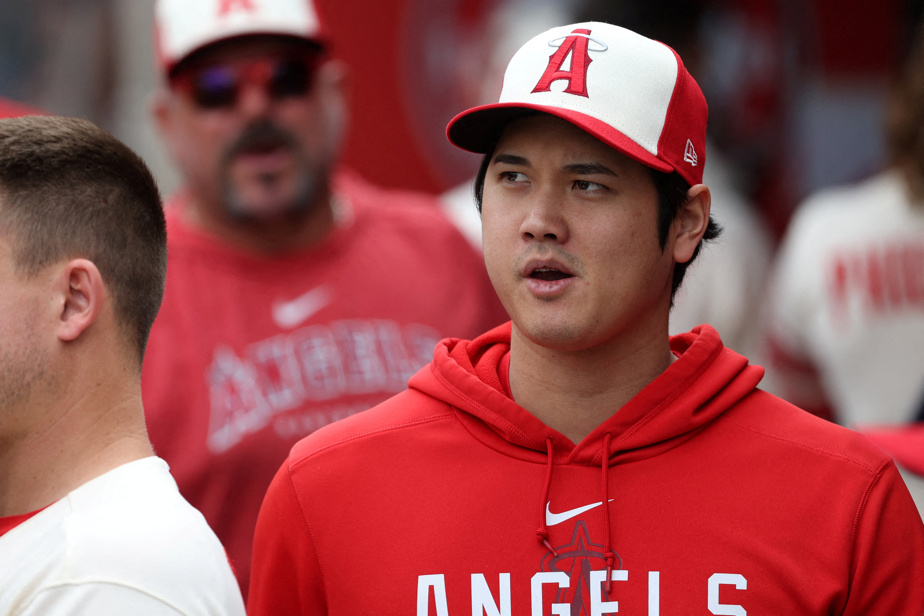For cultural reasons, the Japanese baseball player is discreet and expresses himself through his performances. But Shohei Ohtani has never feared making waves.
In high school, he wanted to be the first Japanese to go straight to the majors. In his professional debut in Japan, he demanded playing outfield and mound, which is rare. He continued with the Los Angeles Angels for the final six seasons, earning two MVP awards and the nickname “Japanese Babe Ruth.”
At 29, he just signed a 10-year, $700 million deal with the Los Angeles Dodgers. The record contract, announced Saturday, is as impressive as his homers and fastball: $275 million more than Angels teammate Mike Trout received in 2019; 10 million more per season than Damian Lillard of the NBA’s Milwaukee Bucks, who had the highest annual salary in American professional sports. It’s also more than the 50 to 60 million that the Argentinian Lionel Messi collects each year with Inter Miami, in soccer.
Ohtani’s blockbuster deal highlights the often confusing economics of baseball and professional sports in general, where broadcasters and companies cough up hundreds of millions, even billions, of dollars to tie their businesses to players and teams. whose success may be fleeting.
The Japanese Hideo Nomo, Ichiro Suzuki and Hideki Matsui obtained considerable contracts. But Ohtani broke the bank. This contract shows that Japanese players are not just very good: They are among the best – and most popular – in an increasingly international sport.
“There are more and more Japanese players in the United States, but with Ohtani we’re taking it to a whole new level,” says Vince Gennaro, vice provost of the sports administration program at New York University. , who advised various major teams.
But teams evaluating talent have the same problem as American players: Managing a team isn’t like managing an airline or a grocery store. Supply, demand, profits and losses are unpredictable and random. A player’s monetary value is often based on disparate statistics and a hunch that he won’t be slowed down by age, injuries or bad luck.
Ohtani excels at the plate, but he may not pitch in 2024 after injuring his elbow last summer. However, if he remains a formidable hitter, the Dodgers pay him for his prowess at the plate and on the mound. So, they will get only a fraction of what they pay for their colossal investment.
So how do we finance this golden bridge?
Since the Dodgers already have the best crowds in the majors (10 of the last 11 seasons), box office revenue can’t increase that much. Raise ticket prices? That would scare away the average fan, who doesn’t arrive at the stadium in a limousine.
Since Ohtani’s games will be broadcast in Japan, Japanese companies will want to pay for ads at Dodgers Stadium. Will they want to pay more than an American company? We’ll see. The Dodgers have exclusive sales of jerseys, caps and other items on their territory, but revenues outside their region are shared with all 30 baseball teams.
And although the Dodgers already have a lucrative local broadcast contract, it is the league that controls national and international deals, including the one with the Japanese broadcaster.
Ohtani’s contract might never have been signed if Hideo Nomo, Hideki Irabu and Dominican Alfonso Soriano had not challenged Japanese restrictions on player movement in the 1990s. Nomo, for example, retired from Japanese baseball so he could sign with the Dodgers, while Irabu said no when the Chiba Lotte Marines wanted to trade him to the San Diego Padres. Irabu was then sent to the Yankees, the team he wanted to play for. A few years later, Soriano, who had been recruited as a teenager by the Toyo Carpes of Hiroshima, followed.
If the Dodgers don’t make money directly with Ohtani, perhaps they are banking on the long term. They have been in the playoffs for 11 years straight, but have only won one World Series. Pairing Ohtani with Freddie Freeman and Mookie Betts – two other former MVPs – and a great group of pitchers, the Dodgers could be the dominant team of the decade.
It’s a far cry from the Los Angeles Angels, who never made the playoffs or even had a season above .500 in Ohtani’s six seasons.
“If the Dodgers win two or three World Series in the next six or seven years, Ohtani will be the face of the franchise and a whole generation of fans will follow the team for years to come,” Mr. Gennaro predicts.
